The artificial grass of today is a far cry from what it was when it first appeared in 1966. Back then, it was used almost exclusively in sports fields. It was thick-fibered, and its primary purpose was to withstand heavy traffic from the cleats of athletes for long periods of time. Nowadays, the selection of artificial grass products is so variegated that they are used everywhere from playgrounds to veterinary clinics. Some varieties are visually indistinguishable from real grass and still others feel just as soft as the real thing on one's feet.
Indeed, artificial grass technologies have advanced so dramatically over the last few years that lawmakers who were once opposed to their being placed in residential settings are now supportive of it. Lawmakers in San Diego, for instance, proposed a bill this year that would permit residents in homeowner associations to replace their natural grass lawns with artificial grass. In the past, if homeowners installed artificial grass, many had to worry about fines and other penalties.
Despite these changes, however, the main advantage of artificial grass remains the same. It saves time, money and water.
Still, some are not convinced of artificial grass' eco-friendliness. On Houzz, for instance, the number one complaint is that artificial grass harmful to the environment by being a petroleum product and a contributor to global warming when overheating on hot days. Nonetheless, more evidence is surfacing which points to artificial grasses environmental advantages over natural grass. Most recently, it was proven that natural grass lawns as a whole emit more greenhouses gasses than the grass itself absorbs.
Pros and cons aside, there are some questions that are frequently asked by people who are new to the artificial grass world. Let's address those questions forthwith.
What is artificial grass? Artificial grass is a surface composed of synthetic fibers that emulate the look of natural grass. It is sometimes called synthetic turf, artificial turf, synthetic grass, fake grass, and plastic grass.
What are the advantages of artificial grass? It requires minimal maintenance, doesn't require water, fertilizers or pesticides, and looks manicured all year long with none of the hard work.
How is artificial grass used? Artificial grass is used everywhere from sports fields to residences. The most prevalent applications are:
1. On residential landscapes. Artificial grass is extremely popular these days among homeowners looking to save time, money and water that would otherwise be spent on lawn maintenance.
2. On sports fields, tennis courts, and putting greens. Artificial grass increases playing time and reduces maintenance expenses.
3. In pet facilities. Artificial grass is an ideal surface for accommodating pet activities. It is highly resistant to force and eliminates the negative side effects associated with real grass and pets, e.g. mud, dead grass, yellow spots.
4. In childcare facilities and playgrounds. Artificial grass is outstripping rubber and asphalt as a surface for children at play. It provides a cushioned surface, increases the facility's usability, and reduces grass stains and maintenance costs.
In short, artificial grass can be used anywhere for cosmetic or practical purposes. It's even been used for purely aesthetic purposes: in 2014, a Bay Area artist incorporated fake grass into her art installation at Et al. gallery in San Francisco. And in 2009, Black and White Gallery in Brooklyn, NY, presented an installation by artists Alina & Jeff Bliumis called "Be Happy," which presented a cutout composed of artificial grass of a woman with a 'Be Happy' talk balloon "as a metaphor for 'greener pastures,' the search for which entices people to migrate" -- (and replace their natural grass lawns with synthetic!).
As you can see, the applications of artificial grass these days are many and varied. Doubtlessly, it can be a useful addition to a number of situations -- confirming that, for some, the grass is greener on the artificial side indeed.


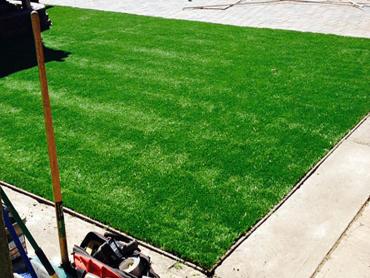
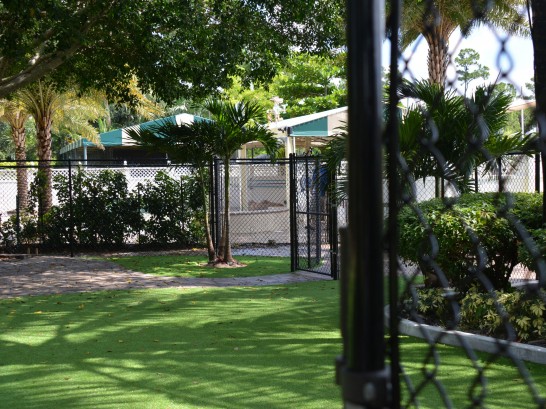
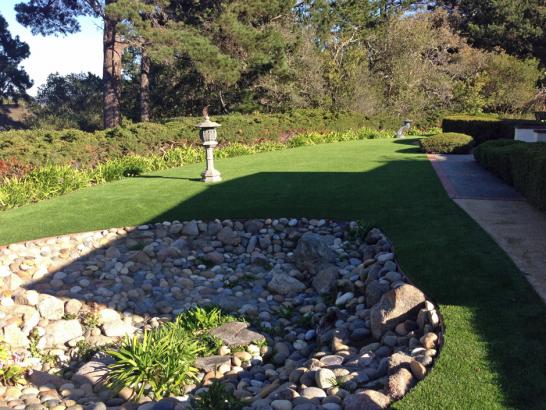
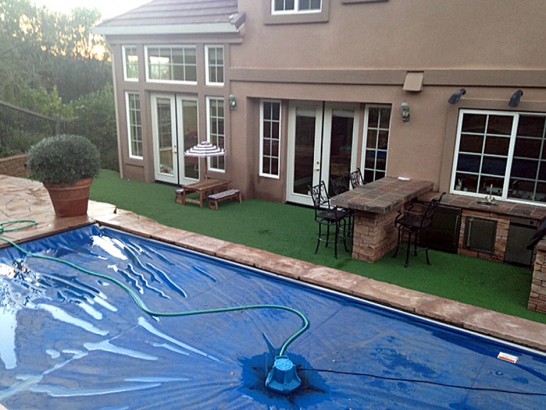
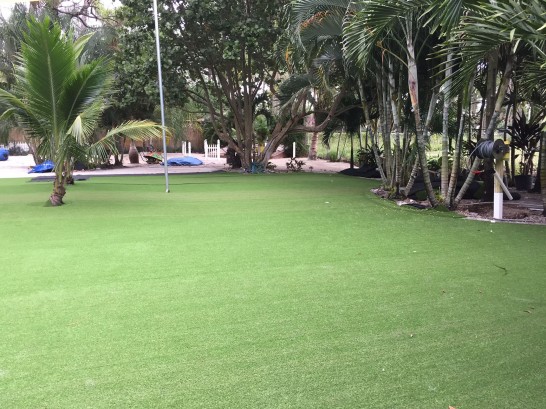
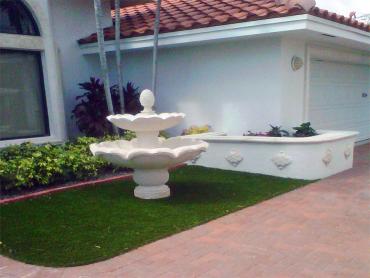
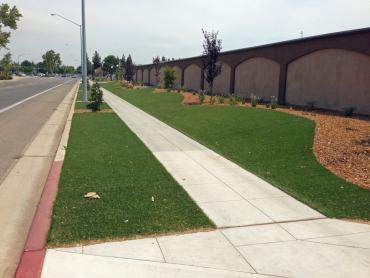
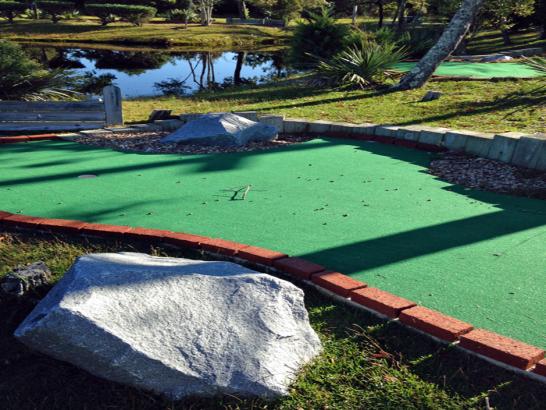
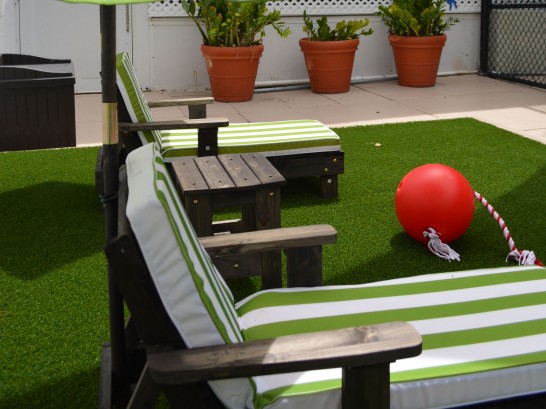

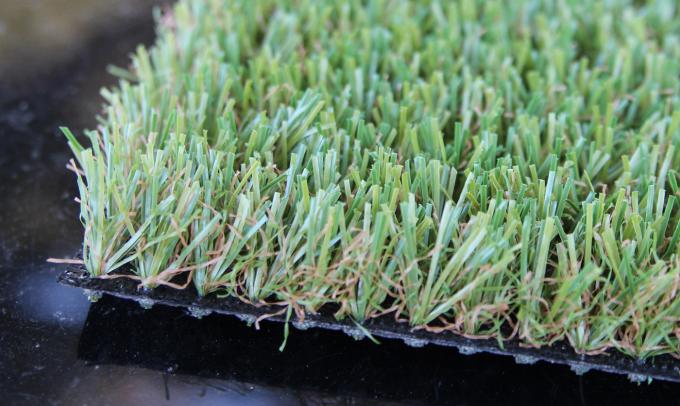
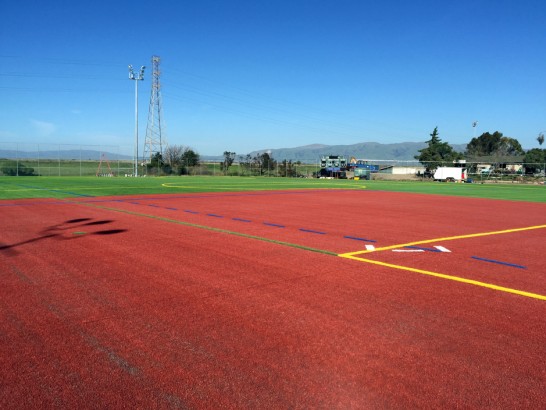
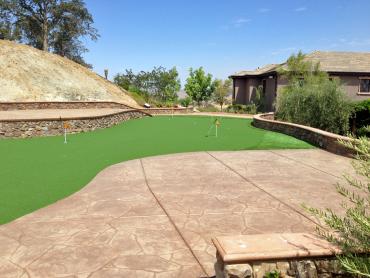
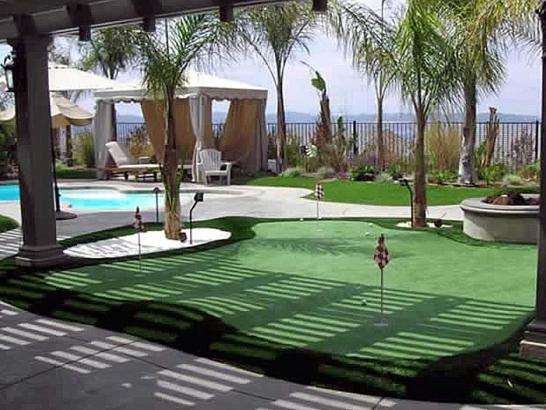
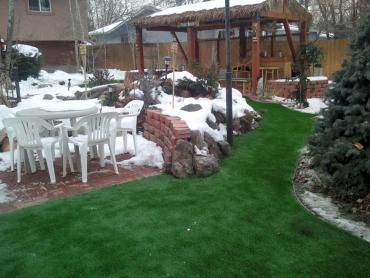
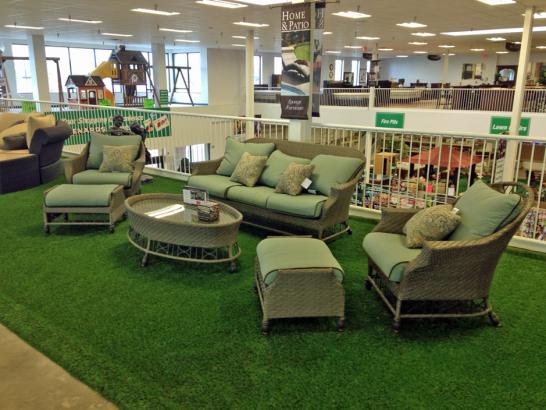
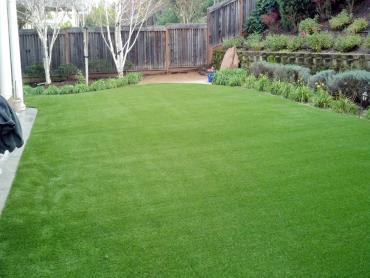
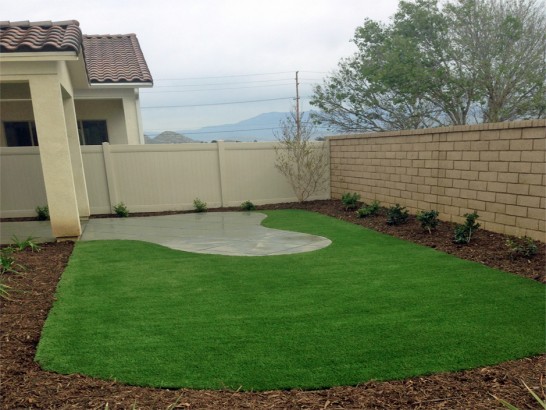
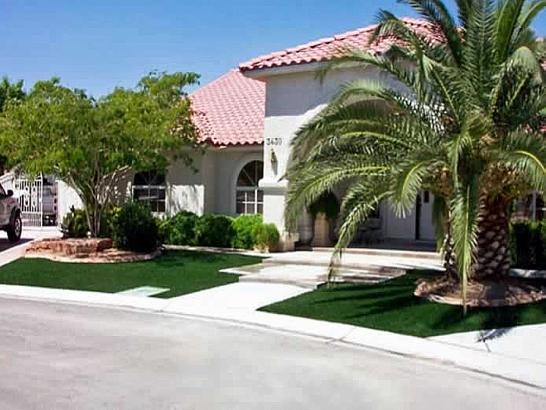
Responses To What the #$&% is Artificial Grass?